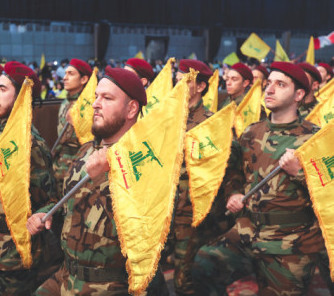Currently consultations between the parties take place in Ankara by the mediation of Turkey. The next round of consultations is scheduled for June 8, but according to the mediator, the parties still have disagreements, which may affect the prospects of the talks.
Already at the beginning of the consultations Tel-Aviv put forward political preconditions for liberation of the Golans demanding from Damascus to close up its relations with Iran and abandon support and assistance to Shiah movement Hizballah in Lebanon.
Syria, an only country of the region that actually has a conflict with Israel and endangers its interests, traditionally and historically relies on Iran in pursuing its policy. In late May, 2008, at a meeting in Tehran the ministers of defense of Syria and Iran signed a memorandum of intentions in the sphere of joint defense. The memorandum stipulates automatic mutual involvement of both countries in repelling the aggression in case of an attack on any of the parties.
Syrian President Bashar Asad addressing the British parliamentary delegation in Damascus last week expressly claimed that the Israeli political preconditions are unacceptable, and interpreted them as interference in external political affairs of other country. “Syria is not entitled to demand from Israel to revise its relations with the USA. Similarly, Israel has no right to dictate to Syria how it should build its relations with Iran”, the Syrian leader emphasized.
Evidently, only due to military and political partnership with Iran Syria remains an influential state in the Middle East, which national interests and military capabilities are respected. There is no Iraq of Saddam Hussein now. Lebanon is too weak to be a strong opponent to Israel. The split in Palestine only pays into the hands of Israel, which will endeavor to preserve the present state and exploit it to its benefit.
Any hypothetical assumption that Damascus may distance itself from Tehran, would put Syrian in a catastrophic position, Syria would immediately lose huge material assistance in the form of crude and petroleum products, as well as large Iranian investments in the Syrian economy.
The Syrian leaders understand this situation well enough and continue successive development of bilateral relations with Iran.
President of Iran Mahmud Ahmadinejad and his supporters are quiet in their reaction to the efforts of its ally to get the occupied Golans back and establish lasting peace with Israel. Meanwhile it seems that Iran does not believe in success of the talks considering with reason that the Israelis once again play a performance of political parties on the eve of the change of power in the country.
In turn, the Syrian side from the very beginning of the consultations insists that the Israeli side would provide a documentary confirmed format of mutual concessions and compromises, and draft an agreement distinctly indicating the borders of both states after withdrawal of the Israeli troops from the occupied Golans. President Bashar Asad has all reasons to be concerned that Israel as it was in the last century will deliberately provoke a breakdown of the talks at the final stage by putting forward new preconditions unacceptable to Syria.
In general Middle East political analysts are critical of the prospects of full Golan liberation by Israel. Imad Mustafa, a political analyst of The Wall Street Journal, emphasized: “It is only Washington that may decide if there would be peace between Israel and Syria. The White House is very much interested "to lay hands on” Damascus isolating it from Tehran. Iran is a price that Syria has to pay for liberation of the Golans”.
In the beginning of the Arab-Israeli War of 1967 this territory was used by the Syrians as the most important strategic bridgehead to attack Israel. However, already at the preceding talks in 1999 the parties agreed in detail that the Golans will be a demilitarized zone controlled by an international force. In fact, the Golan Heights are a key source of water for the Sea of Tiberias , and Israel intends to keep them under its full control. It is unacceptable to Syria.
Israel also does not believe in success of the talks with Syria. The majority of influential politicians in this country stands flatly against the return of the annexed territories and revision of state borders in favor of the Arabs. But meanwhile they prefer to keep mum and avoid hysterical criticism of the government’s steps assuming quite reasonably that it is the USA that initiated this performance. So, they see no need to pay too much attention to the talk-performance played by Israel with Syria.
Scandalous actual Premier Ehud Olmert just as US President George Bush needs to urgently demonstrate an illusion of achievements in the politics of Israel, and introduce something new in the history of the state. As for the Palestinians , Olmert succeeded only in preserving the state of split initiated by the preceding head of government. Olmert failed in the second Lebanese war of 2006, which seriously undermined his influence on the political establishment and society. Now the second adventure is next in turn. Against Syria, and still indirectly against Iran.
The idea of Washington supervising the Tel-Aviv politics is clear – to use the Syrian contacts with the Israelis in order to bring about a break of or at least sow the seeds of mistrust in the relations between Syria and Iran. For the USA it is most important to draw Syria in the talks and use a favorable opportunity to get itself involved in these talks to improve its relations with Damascus and make it more amenable.
However, everything is different in practice. There is no feedback of Israel to blandishment and even orders from Washington to accelerate reconciliation with the Palestinians in the Gaza Strip, refrain from construction of new Jewish residential quarters in Jerusalem, establish confidential relations with the Jordan River West Bank authorities, etc.
Instead Israel goes on pushing the USA to the use of force against Iran, and actively prepares the public in West Europe to justification of an attack on Iranian facilities against the background of the peace talks with Syria. May be also in order to exploit them to keep Damascus from fulfillment of the allied agreements with Tehran in jointly repelling the aggression.









